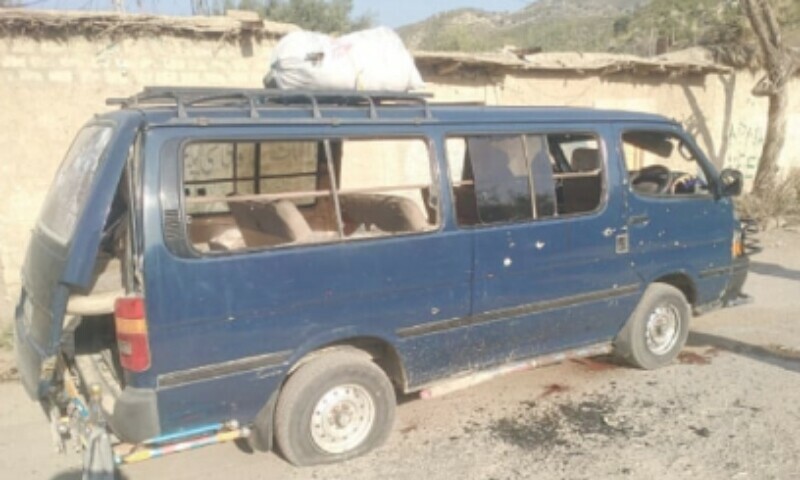Protests rock Kurram after dozens die in attack
The official death toll speaks of more than 40 dead, but according to other information disseminated online, the number of victims is more than 100. The convoy that was targeted was travelling along a recently reopened road with an escort of agents. No group has claimed responsibility for the attack, but the province of Khyber Pakhtunkhwa has been unstable for some time and residents accuse the government of failing to guarantee the safety of residents.
Parachinar (AsiaNews) - The official death toll after yesterday's attack on a convoy of vehicles in the Kurram district of Pakistan's Khyber Pakhtunkhwa province has risen to more than 40, but according to other information circulated on social media there could be 110 dead, most of them Shia, including 11 children.
According to politician Mushtaq Ahmad Khan, the youngest victim was just six months old. The local population today organised demonstrations against the local administration for not providing a sufficient level of security.
Unidentified gunmen opened fire at a group of about 200 vehicles travelling from Parachinar to Peshawar, according to the police.
The local deputy commissioner, Javedullah Mehsud, also said that Shia worshippers had been targeted in two separate attacks.
The road had been reopened in recent days and transit was limited to convoys escorted by police. Between 40 and 50 officers were present with the passengers.
The attack took place in a region with a long history of sectarian tensions and territorial disputes, but it is not yet clear who the perpetrators are.
The Tehreek-e-Taliban Pakistan, the Pakistani Taliban, also known as the TTP, distanced themselves and accused Pakistan's security forces of staging the attack to instigate sectarian riots between Sunnis and Shias.
According to Iftikhar Firdous, a local journalist and analyst, an Islamic State cell active in the region (known as ISKP, which stands for Islamic State Khorasan Province) 'has been trying to exert influence in the area for some time by targeting the Shia population and fomenting sectarian violence'.
Demonstrations broke out in Parachinar today: demonstrators looted and set fire to two checkpoints, chanting slogans against the provincial administration.
The local government has been accused of not taking the increase in terrorist attacks seriously, but of only being focused on the release of Imran Khan, former prime minister and leader of the Pakistan Tehreek-e-Insaf (PTI) party.
For about two years, PTI politicians have been accusing the central government in Islamabad of keeping Imran Khan in jail on fictitious charges.
In the meantime, armed clashes in Khyber Pakhtunkhwa and Belucistan (another province that has seen an increase in attacks, in this case mainly by independence militias) resulted in 55 deaths among the security forces in the first three weeks of November alone.
Sources in the Pakistani English-language daily Dawn explained that the attack appears to be a response to another clash, which occurred on 12 October and in which 15 people died.
Deputy Commissioner Mehsud explained: 'We will try to restore routine as quickly as possible and then a grand jirga will be convened. The jirga is a meeting in which elders and tribal leaders take important decisions for the community.
The province of Khyber Pakhtunkhwa borders Afghanistan and has long been unstable. Sectarian violence had also been fuelled by tribal conflicts over land ownership in the past.
The provincial government had appointed a commission in September to resolve the issue, but has not yet made public the report produced by the experts and has not taken any decision on the matter.
According to Amelia Gill, a Christian human rights activist based in the UK, 'the main cause of these incidents is hate speech that can incite mob violence and religious extremism'.
The activist also accused the state of being absent in some regions of the country: 'What is the state doing, why is it not dealing with these monsters? In fact, the silence of the state is the main reason for all these unpleasant incidents. The citizens of KP and Baluchistan live their lives like hell because the state has failed to control the situation. My question is: is Pakistan a place where innocent citizens can live freely? When will the state protect its citizens?" he added.
12/02/2016 15:14







.png)










